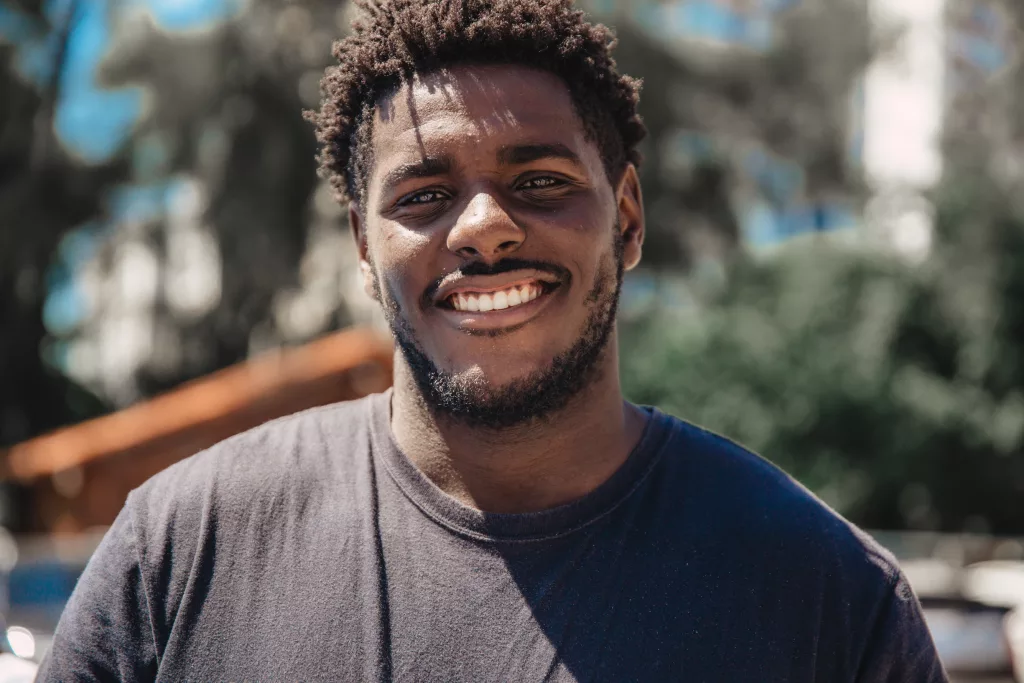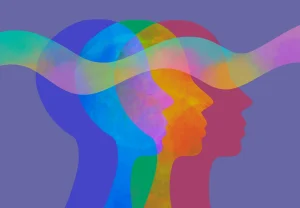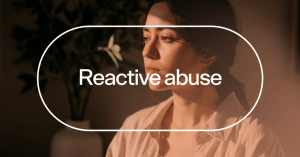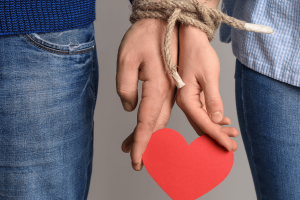An emotionally unavailable partner may be evasive, make frequent excuses, and be unwilling to discuss their feelings openly. If you’ve ever been in a relationship with a person who is emotionally unavailable, you may be familiar with the agony of being unable to connect with your partner. As a result, you may experience feelings of isolation, depression, unimportance, or rejection.

Why do we choose an emotionally unavailable partner?
Researchers suggest that your inner child impacts how you select your partner and the way you lead your relationships. We seek love based on feelings of insecurity look for partners to give us the validation we can’t give ourselves. We tend to perform for the love and affection of someone else instead of believing that we deserve it. Staying stuck in these relationships even though we know they’re not good or healthy for us.
At the core of how we choose and conduct our relationships is a set of basic human fears, like:
“I am not worthy.”
“I am not lovable.”
It’s ironic that we are so scared to be rejected by someone else that we abandon ourselves in order to keep them. We adopt the ability to anticipate other people’s needs. We have this idea that if we take care of their needs, we’ll be more lovable. But the issue has never been what you do or do not do, or how much you give or do not give. The issue has always been why you believe love is supposed to be this way.
How to tell if you have an emotionally unavailable partner: 6 vital signs
Emotional unavailability can be temporary or chronic. It’s not your job to try to analyze or understand them; that’s their job. You need to focus the mirror on yourself and ask yourself why you are staying attached to that person who isn’t loving you the way you want and need to be loved.
Here are six indicators that your partner (if you’ve been dating for at least four months) may be emotionally unavailable:
- Inconsistent communication. communicating a lot, not communicating, then going back to communicating like nothing ever happened.
- They avoid going too deep in conversations and try to keep things on the surface-level.
- They like to keep things casual and don’t want to put a label on it.
- They are unclear about what they want.
- They expect everything to revolve around them, their needs, and their schedule.
- When you get more vulnerable or you need them, they’re nowhere in sight.
How to deal with emotional unavailability: Change your mindset
There is a Selena Gomez song that goes like this: “I had to lose you to love me.” When we find ourselves in toxic or codependent relationships, one of the greatest acts of self-love is to be willing to walk away from that one person and that relationship, no matter how much we love them, even if it’s the last thing that we want to do.
Dealing with emotional availability requires a conscious change of mindset. It’s way easier said than done, especially when we get so entrenched in trying to love someone in such a way that even while they are trying to break you, you try to fix them.
As long as you believe that you have to prove yourself in order to be loved, you will continue to be in relationships that prove you aren’t enough. But no matter how entrenched you may feel in your relationship, it doesn’t have to stay that way. Thinking intentionally can offer you the much-needed clarity to bring in the desired change.
When wondering why we tend to choose an emotionally unavailable partner, understand that:
- You keep repeating the same patterns that match your wounds in an attempt to finally get what you didn’t get in your childhood.
- Your unhealed self is going to be attracted to someone who has the worst traits of a caregiver or parent you had.
- You have to understand your patterns because they determine how you choose and conduct your relationships.
- Sometimes we mistake being loved for being unavailable because that’s what we recognize.
- You must understand why you are dating and what your intentions are.

Dr. Janie Lacy, LMHC, NCC, CSAT-S is a Licensed Relationship Trauma Psychotherapist. She is also a faculty member with the International Institute of Trauma and Addiction Professionals and an entrepreneur who took her counseling business from a solo practice to a group specialty practice. She’s the creator of Woman Redeemed, an intensive experiential group experience that uses proven therapy strategies to start women on their healing journey.






